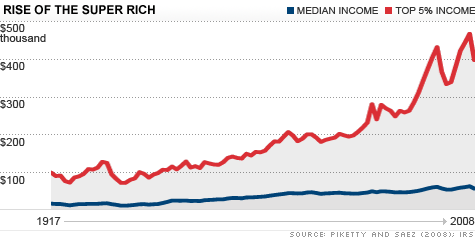The economic value of chastity
 People too frequently talk about morality as entirely disconnected from this world. Everything here is wrecked, they suggest, so you perform this otherworldly duty that makes no sense by the rules of the gritty physical environment in which we live.
People too frequently talk about morality as entirely disconnected from this world. Everything here is wrecked, they suggest, so you perform this otherworldly duty that makes no sense by the rules of the gritty physical environment in which we live.
While that description applies to most of the arbitrarily abstract theories of those who have lost sight of reality as a cause/effect relationship, it does not apply to the oldest school of morality.
In the eyes of the ancients, morality was a pragmatic adaptation to the conditions of existence — but also carried with it a grace, and reverence, that showed a connection not to the convenience of the present but the ideals of the future.
So it is with chastity. You don’t act the slut not so much because you expect to die of AIDS or have an anvil fall on your head, but because acting like a slut lays (no pun intended) the groundwork for a future order that is negative, or based on the cheapness of things.
Instead, you might prefer an order based on the value of better things that rise above the rest, especially if you think you might someday have a teenage daughter. (Watch your friends: they get more conservative when their kids, especially daughters, hit puberty.)
In the modern era, we have cheapened many things under the guise of making them equally accessible to all. While we have achieved our goal, we have also failed to consider its larger context, which is that by cheapening things we make valuable and good things farther out of reach.
Only about 10 people attended, but the room came to a complete silence when the officer interrupted the more senior officer and made the reference to “sluts,†he told the Star.
“You know I think we’re beating around the bush here,†the officer said, according to Hoffman. “I’ve been told I’m not supposed to say this, however, women should avoid dressing like sluts in order not to be victimized.â€
The senior officer was silent for a moment and then picked up the presentation.
“I don’t think he was sarcastic or malicious. I think he thought he was being helpful,†Hoffman said. – The Star
Officer Honest McClueless here committed a sin: he was unaware of the social dimensions of what he was saying, even if it was true. This type of action is only a sin in a time of decay. In other times, people would recognize the mathematical truth of his statement: if you hand out sexual favors, you have reduced the distance between consent and force. After all, you’ve cheapened those sexual favors, so it’s not like robbing a bank, but more like shoplifting.
In the same way, women at colleges across America are finding out that getting blind drunk and wandering off with some dude puts you into a legal gray area. In “he said, she said” cases, the courts generally do not prosecute because there is no evidence chain. Making that even worse, drunk women tend not to resist forcibly enough to have incontrovertible signs of violent sexual assault.
When we cheapen sexuality, we remove the sacred nature of relationships themselves. At that point, all that remains is lust and convenience, and these do not make for lasting relationships, but rather, temporary ones:
There is, for me, nothing worse than coming home to find somebody who cannot even be bothered to turn their head away from the television to ask how my day was.
It makes me feel that I’m invisible or don’t deserve the kindness of a simple ‘hello’. That’s loneliness.
So is two people sleeping back to back, or making conversation with somebody with whom you have nothing left in common. Loneliness for me is about a lack of connection, whether that’s to a person or to life itself, so if there’s anything lonelier than alienation from another human being whom you once loved — and were loved by — I have no idea what it might be.
I feel far less lonely on my own than I did in a marriage filled with polite, frigid silence. – Daily Mail
The root of modern alienation is in that in order to achieve equality, we have removed everything unique to experience and distilled it to a factory-made, one-size-fits-all, contextless material experience. Everyone can participate in that. Equally, even. But it is soulless. Without the highs and lows of life, and some things being rarer than others, we settle into a comfortable entropy where each choice is about as good as the next. We stop striving. And our civilization decays.
Now to explain the overburdened metaphor in the title of this blog post:
Image and quotation below from How the middle class became the underclass (CNN).
In 1988, the income of an average American taxpayer was $33,400, adjusted for inflation. Fast forward 20 years, and not much had changed: The average income was still just $33,000 in 2008, according to IRS data.
Meanwhile, the richest 1% of Americans — those making $380,000 or more — have seen their incomes grow 33% over the last 20 years, leaving average Americans in the dust.
The article goes on to woolgather about reasons why this income is so low, but most of their “reasons” are not causes, but effects. The actual cause, which is too many people in the workforce competing for the same jobs and thus driving the value of those jobs down, is not discussed. Globalism gets a nod.
In the meantime the super-rich are getting richer not so much of their own doing, but because the value has been squeezed out of the crab-bucket of people scrabbling for jobs, and has to go somewhere. It travels to the top and those who own these businesses that employ the interchangeable cogs.
We should also take note that since 1988, our ability to pre-fabricate necessary ingredients in the workplace has multiplied. Not only pre-fab parts as you’d see at a Home Depot, but also our use of computer software, legal rulings and management theory to standardize the office. Now each office really is like pretty much any other.
The bigger principle is one of how we approach life itself. We can accept rarity, and treasure it because it allows some exceptional things to exist. Either that, or we can rage against rarity because it threatens us personally, and thus demand that we do away with rarity, with chastity, with exclusivity and elitism, and in doing so, conduct the value of our economy (or personal lives) into a state of entropy.
As modern society faces a “convergence of catastrophes” as Guillaume Faye puts it, from declining resources to unstable climate and radical politics, we will have this decision thrust on us again and again.
Do we want each sexual act to have meaning, or should we remove context? Do we want a nation of equally impoverished middle classes, or a hierarchy? These questions are eternal because they are mathematical, not human, in origin.
Tags: sexual liberation, socialism










